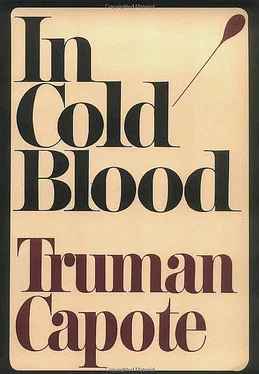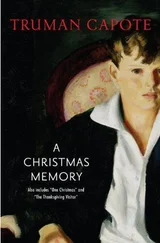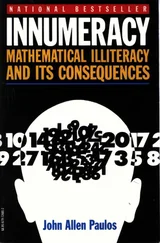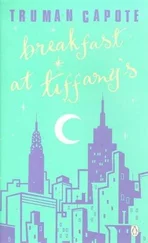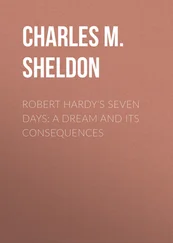Mrs. Hickock removed the spectacles she was wearing, polished the smeared lenses and resettled them on her pudgy, agreeable face. “There’s lots more to Dick than what you hear back there in the courtroom. The lawyers jabbering how terrible he is—no good at all. I can’t make any excuses for what he did, his part in it. I’m not forgetting that family; I pray for them every night. But I pray for Dick, too. And this boy Perry. It was wrong of me to hate him; I’ve got nothing but pity for him now. And you know—I believe Mrs. Clutter would feel pity, too. Being the kind of woman they say she was.”
Court had adjourned; the noises of the departing audience clattered in the corridor beyond the lavatory door. Mrs. Hickock said she must go and meet her husband. “He’s dying. I don’t think he minds any more.”
Many observers of the trial scene were baffled by the visitor from Boston, Donald Cullivan. They could not quite understand why this staid young Catholic, a successful engineer who had taken his degree at Harvard, a husband and the father of three children, should choose to befriend an uneducated, homicidal half-breed whom he knew but slightly and had not seen for nine years. Cullivan himself said, “My wife doesn’t understand it either. Coming out here was something I couldn’t afford to do—it meant using a week of my vacation, and money we really need for other things. On the other hand, it was something I couldn’t afford not to do. Perry’s lawyer wrote me asking if I would be a character witness; the moment I read the letter I knew I had to do it. Because I’d offered this man my friendship. And because—well, I believe in the life everlasting. All souls can be saved for God.”
The salvation of a soul, namely Perry Smith’s, was an enterprise the deeply Catholic undersheriff and his wife were eager to assist—although Mrs. Meier had been rebuffed by Perry when she had suggested a consultation with Father Goubeaux, a local priest. (Perry said, “Priests and nuns have had their chance with me. I’m still wearing the scars to prove it.”) And so, during the weekend recess, the Meiers invited Cullivan to eat Sunday dinner with the prisoner in his cell.
The opportunity to entertain his friend, play host as it were, delighted Perry, and the planning of the menu—wild goose, stuffed and roasted, with gravy and creamed potatoes and string beans, aspic salad, hot biscuits, cold milk, freshly baked cherry tarts, cheese, and coffee—seemed to concern him more than the outcome of the trial (which, to be sure, he did not consider a suspenseful matter: “Those prairiebillys, they’ll vote to hang fast as pigs eat slop. Look at their eyes. I’ll be damned if I’m the only killer in the courtroom”). All Sunday morning he prepared to receive his guest. The day was warm, a little windy, and leaf shadows, supple emanations from the tree boughs that brushed the cell’s barred window, tantalized Perry’s tamed squirrel. Big Red chased the swaying patterns while his master swept and dusted, scrubbed the floor and scoured the toilet and cleared the desk of literary accumulations. The desk was to be the dining table, and once Perry had finished setting it, it looked most inviting, for Mrs. Meier had donated a linen tablecloth, starched napkins, and her best china and silver.
Cullivan was impressed—he whistled when the feast, arriving on trays, was placed upon the table—and before sitting down, he asked the host if he might offer a blessing. The host, head unbowed, cracked his knuckles as Cullivan, with bowed head and palms together, intoned, “Bless us, O Lord, and these thy gifts which we are about to receive from thy bounty, through the mercy of Christ, our Lord. Amen.” Perry murmuringly remarked that in his opinion any credit due belonged to Mrs. Meier. “She did all the work. Well,” he said, heaping his guest’s plate, “it’s good to see you, Don. You look just the same. Haven’t changed a bit.”
Cullivan, in appearance a cautious bank clerk with depleted hair and a face rather difficult to recall, agreed that outwardly he hadn’t changed much. But his interior self, the invisible man, was another matter: “I was coasting along. Not knowing God is the only reality. Once you realize that, then everything falls into place. Life has meaning—and so does death. Boy, do you always eat like this?”
Perry laughed. “She’s really a terrific cook, Mrs. Meier. You ought to taste her Spanish rice. I’ve gained fifteen pounds since I got here. Course I was on the thin side. I’d lost a lot of weight while Dick and me were out on the road riding all to hell and gone—hardly ever eating a square meal, hungry as hell most of the time. Mostly, we lived like animals. Dick was always stealing canned stuff out of grocery stores. Baked beans and canned spaghetti. We’d open it up in the car and gobble it cold. Animals. Dick loves to steal. It’s an emotional thing with him—a sickness. I’m a thief too, but only if I don’t have the money to pay. Dick, if he was carrying a hundred dollars in his pocket, he’d steal a stick of chewing gum.”
Later, over cigarettes and coffee, Perry returned to the subject of thievery. “My friend Willie-Jay used to talk about it. He used to say that all crimes were only varieties of theft.’ Murder included. When you kill a man you steal his life. I guess that makes me a pretty big thief. See, Don—I did kill them. Down there in court, old Dewey made it sound like I was prevaricating—on account of Dick’s mother. Well, I wasn’t. Dick helped me, he held the flashlight and picked up the shells. And it was his idea, too. But Dick didn’t shoot them, he never could’ve—though he’s damn quick when it comes to running down an old dog. I wonder why I did it.” He scowled, as though the problem was new to him, a newly unearthed stone of surprising, unclassified color. “I don’t know why,” he said, as if holding it to the light, and angling it now here, now there. “I was sore at Dick. The tough brass boy. But it wasn’t Dick. Or the fear of being identified. I was willing to take that gamble. And it wasn’t because of anything the Clutters did. They never hurt me. Like other people. Like people have all my life. Maybe it’s just that the Clutters were the ones who had to pay for it.”
Cullivan probed, trying to gauge the depth of what he assumed would be Perry’s contrition. Surely he must be experiencing a remorse sufficiently profound to summon a desire for God’s mercy and forgiveness? Perry said, “Am I sorry? If that’s what you mean—I’m not. I don’t feel anything about it. I wish I did. But nothing about it bothers me a bit. Half an hour after it happened, Dick was making jokes and I was laughing at them. Maybe we’re not human. I’m human enough to feel sorry for myself. Sorry I can’t walk out of here when you walk out. But that’s all.” Cullivan could scarcely credit so detached an attitude; Perry was confused, mistaken, it was not possible for any man to be that devoid of conscience or compassion. Perry said, “Why? Soldiers don’t lose much sleep. They murder, and get medals for doing it. The good people of Kansas want to murder me—and some hang-man will be glad to get the work. It’s easy to kill—a lot easier than passing a bad check. Just remember: I only knew the Clutters maybe an hour. If I’d really known them, I guess I’d feel different. I don’t think I could live with myself. But the way it was, it was like picking off targets in a shooting gallery.”
Cullivan was silent, and his silence upset Perry, who seemed to interpret it as implying disapproval. “Hell, Don, don’t make me act the hypocrite with you. Throw a load of bull—how sorry I am, how all I want to do now is crawl on my knees and pray. That stuff don’t ring with me. I can’t accept overnight what I’ve always denied. The truth is, you’ve done more for me than any what you call God ever has. Or ever will. By writing to me, by signing yourself ‘friend.’ When I had no friends. Except Joe James.” Joe James, he explained to Cullivan, was a young Indian logger with whom he had once lived in a forest near Bellingham, Washington. “That’s a long way from Garden City. A good two thousand miles. I sent word to Joe about the trouble I’m in. Joe’s a poor guy, he’s got seven kids to feed, but he promised to come here if he had to walk. He hasn’t shown up yet, and maybe he won’t, only I think he will. Joe always liked me. Do you, Don?”
Читать дальше
